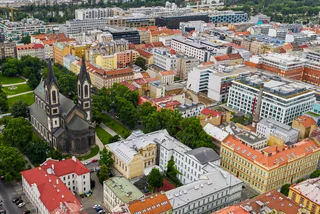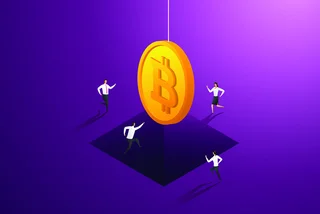When the Czech National Bank announced a 0.75 percent interest rate increase just over a month ago, it caused shock throughout the world of politics and economics. Yet now, with fears about inflation only getting worse, the ČNB has gone even further.
The bank yesterday announced a 1.25 percent increase to the base interest rate, taking it up to 2.75 percent, the highest level since before the financial crash of 2008. This increase is likely to be felt by the general public in an increase in mortgage interest rates.
The bank’s move was a response to levels of inflation which the ČNB fears could spiral out of control if action is not taken to limit public spending. In September, inflation reached 4.9 percent, and the ČNB predicts that at the end of the year inflation could be as high as 7 percent.
“Given the unprecedented situation we are experiencing, in which we estimate that inflation will be as high as 7 percent at the turn of the year, we must move faster than previously expected,” said Jiří Rusnok, Governor of the Czech National Bank.
The rate increase is likely to see mortgage loan providers raise their own interest rates. Indeed, the previous 0.75 percent rate hike already saw providers such as ČSOB and Česká spořitelna respond with rate increases of their own, and the ČNB’s latest move is expected to push them still further. The news will not be welcome for a general public which is also seeing record increases in the cost of living, with gas prices soaring due to Europe-wide supply issues, as well as significant rises in the cost of everyday food products.
The outgoing Czech government has again criticized the ČNB’s rate increases, warning they will only bring greater profits to banks while failing to prevent rising prices for the public.
“The ČNB is only striking another blow to the Czech economy, citizens and everyone. If they think this will prevent the rise in energy prices, emissions allowances or oil, they are completely wrong,” said current Czech Prime Minister Andrej Babiš, who also pointed out that the interest rate set by the European Central Bank remains at zero.
Yet according to the ČNB’s governor, the latest increase will certainly not be the last in combating inflation.
Opposition leader and incoming Prime Minister Petr Fiala said decisions about interest rates are solely for the consideration of the ČNB and the government should not weigh in on the issue. Economists have meanwhile described the rate increase as a good way to maintain the purchasing power of households in the long term.
“Higher interest rates should lead to a strengthening of the crown, which will reduce the price of imports and therefore reduce imported inflation from abroad,” said Štěpán Křeček to Aktualne.cz.
In increasing interest rates, the ČNB is attempting to secure the long-term economic health of the Czech Republic. But the measure could increase the financial burden faced by the general public, which is already getting ever-heavier due to global supply issues. In the wake of the Covid pandemic, a tightening of belts may lie ahead.












 Reading time: 2 minutes
Reading time: 2 minutes 


























